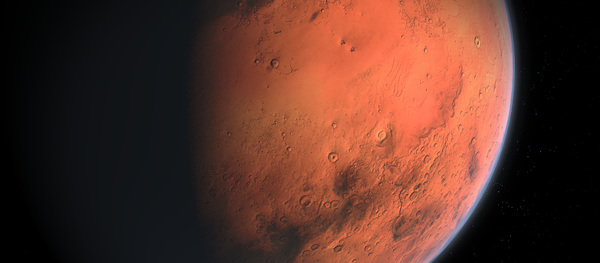NASA's Interior Exploration using Seismic Investigations, Geodesy and Heat Transport (InSight) spacecraft is due to arrive on Mars in a couple of weeks. As it lands on Mars, roughly 70 million miles away, enthusiasts on Earth will be able to watch the event at one of 80 live viewing events or on NASA Television, the agency's social media platforms or YouTube.
InSight's landing should happen around 3 p.m. EST on November 26, which will be around 1:30 a.m. on the November 27 in India, NDTV noted.
On the day of, there will be live landing commentary leading up to the event and "an uninterrupted, clean feed from cameras inside JPL Mission Control, with mission audio only," NASA announced on its website. About an hour and a half after touchdown will be a post-landing news conference.
In 💯 days, I’m scheduled to land on #Mars. My touchdown is set for November 26, making the days around the Thanksgiving holiday extra memorable this year. No other mission has done what I’ll be doing. Learn how I’ll study Mars’ deep interior: https://t.co/nCryBG5VlL pic.twitter.com/yqmM8cHQua
— NASAInSight (@NASAInSight) August 18, 2018
Launched on May 5, the 19-foot-by-5-foot spacecraft is carrying with it a flurry of seismometers and other equipment to help scientists deduce what the inside of Mars looks like — is its core molten, like Earth's, or solid, as some have feared and suspected?
Like Earth, Mars has a solid crust, but underneath Earth's surface sits a molten mantle and liquid metal core, forces that drive Earth's earthquakes and tectonic shifts and also its dynamic magnetosphere, a vast field that protects us from cosmic rays and makes life possible. InSight will look for signs that Mars "wobbles" slightly, a sign its core is somewhat liquid, in the same way you might spin an egg to find out if it's raw or hard-boiled. It'll also measure the speed of marsquakes (that's an "earthquake" but on Mars) to see if the inside of the planet is totally solid, Sputnik reported.
Flying along with InSight are two briefcase-sized mini-spacecraft called Mars Cube One, or MarCO. NASA notes that they will test miniaturized deep space communication equipment and hopefully lead to advances for future missions.



